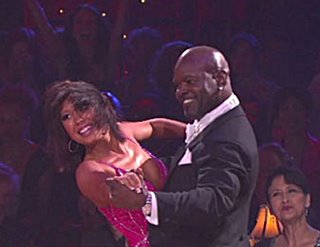Remember those brutal notes I wrote on the screenplay I reviewed the other day? Well, not only did the characters lack some very basic differences that would make the conflicts come naturally, but my sidekick had story problems.
Every character has a story. While the viewer may not need to know the whole story, the writer most certainly should. Since the sidekick is usually a sounding board or voice of reason for the protagonist and often helps shape a conclusion or define the theme or morality of the whole film, his back story is sometimes critical.
Common sidekick problems I've noticed in amateur screenplays:
- The sidekick is just there. No story at all.
- His back story conflicts with his character's behavior.
- His back story is a superfluous waste of time
- His back story is a poorly executed red herring
- We learn too much about his back story
- We don't learn enough about his back story
- His story is too big for the role he plays in the film
My story notes told the author that her sidekick had a back story that was bigger than his role in the film AND her sidekick was entirely too wimpy for the back story she'd given him. Double whammy. Something had to change. My opinion was that not only did her sidekick need to grow a pair, but she also needed to adjust his back story.
As usual, she took it well.
The trick is knowing how much back story is enough. Where's the balance? Well, that's like asking how long to cook a turkey. You need to know the oven size, altitude, turkey weight, and whether it's a standard, convection or microwave oven. Or, you just figure it out as you go. (yeah, I know, bad analogy)
The point is that if the sidekick is gonna be handing out advice and sewing a moral thread in the story, we need to know a little something about what he's basing his opinions on. Is he telling your protagonist that home is in the heart because he grew up in an orphanage or because he read it in a Hallmark card? Is he a minor sidekick with major consequences in the story or a major sidekick who is basically only there so the main character has something to throw humor at?
It matters. It's a balancing act.
The best comparison for my sidekick problem I can think of is Forrest Gump. Bubba Blue is a relatively minor character who leaves early in the film, but he's there long enough to make Forrest want to buy a shrimp boat. Why? Because Bubba knows shrimp. We know that Bubba knows shrimp and that's about all we really need to know about his background. Forrest and Bubba become fast friends and that's the rest of Forrest's motivation to begin the Bubba Gump Shrimp Company. But the beginning? It's because Bubba knows shrimp.
Now, back to me. What did the author decide to do with my brutal notes? Well, I set my ego aside and realized that my sidekick problem would be the equivalent of giving Bubba a huge overblown family history. So I'm working on a "fruit of the sea" type solution.
In case you don't know what a "fruit of the sea" solution is --
BUBBA: . . . shrimp is the fruit of the sea. You can barbecue it, boil it, broil it, bake it, saute it. Dey's uh, shrimp-kabobs, shrimp creole, shrimp gumbo. Pan fried, deep fried, stir-fried. There's pineapple shrimp, lemon shrimp, coconut shrimp, pepper shrimp, shrimp soup, shrimp stew, shrimp salad, shrimp and potatoes, shrimp burger, shrimp sandwich. That- that's about it.
Yup, that's about it.










